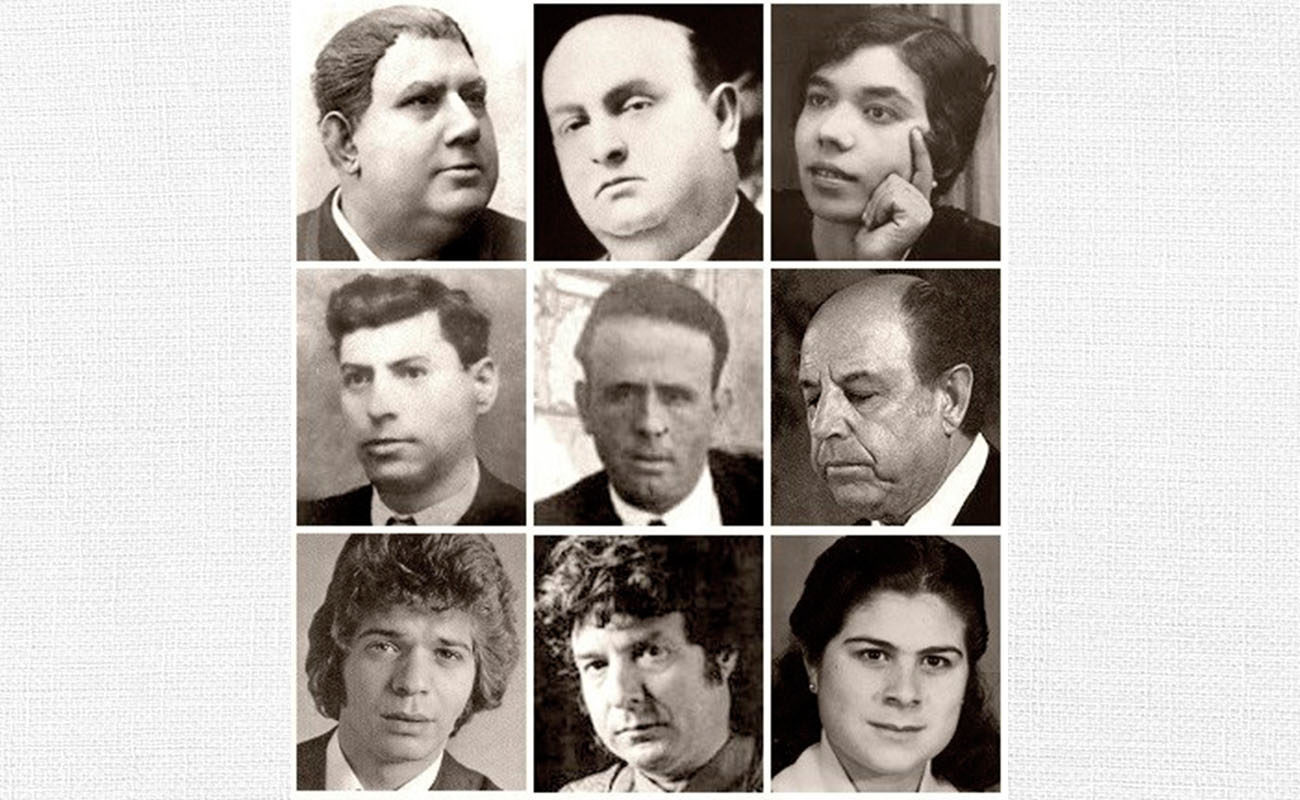Grandpa and the nostalgics
-Grandpa, in your days, were cante aficionados nostalgic about the past, like they are today? -They were nostalgic about cante, baile and toque. Yes, very nostalgic. It’s natural in any art, Manolito. This also happens with poetry or films. Aren’t there any great poets nowadays? Of course there are, and yet we still read Lorca and Machado, and we talk about them, because their works never die.

-Grandpa, in your days, were cante aficionados nostalgic about the past, like they are today?
-They were nostalgic about cante, baile and toque. Yes, very nostalgic. It’s natural in any art, Manolito. This also happens with poetry or films. Aren’t there any great poets nowadays? Of course there are, and yet we still read Lorca and Machado, and we talk about them, because their works never die. Some of the old poets even seem more fresh and modern than contemporary ones. Look, I’ll tell you something, because I can see you’re a bit clueless. Flamenco was supposedly fully formed in the mid 1800s, right? Well, twenty years later people were already writing in newspapers that true flamenco had already died, that the things sung by Silverio and the young Chacónwere not really flamenco. That’s what the nostalgics of the late 1800s said, when cante wasn’t really fully formed yet. Not to mention baile and guitar.
-But grandpa, does it make sense that we’re always talking about Silverio, Chacón, La Niña, Manuel Torres, Vallejo, Mairena, Camarón, Morente or La Paquera?
-Of course it makes sense. Same as talking about, say, Mozart or Falla, because they left a wonderful legacy and were great music masters, just like there are masters in literature or drama. I don’t know why you are bringing up this topic now, you should now this already.
-Yet, doesn’t that nostalgia harm contemporary artists, grandpa? Please explain, because I’m very confused about this.
-Why would it harm contemporary artists? Today’s artists are great nostalgics themselves. Morente would always defend and talk about Matrona, Aurelio or Chacón. Camarón would talk about El Chaqueta or La Perla as if they slept in his home. I think that’s a good thing, even if some people disagree. This veneration for the great masters allows today’s artists to preserve the legacy of those geniuses. Morente created many things of his own while still revering Chacón or Matrona. See? Same with Paco de Lucía, always loving Ricardo and Sabicas. There you have the grandchildren of Farruco, honoring their grandfather whenever they perform on stage. They’ve already developed their own style, without a doubt, but they will always uphold the legacy of their grandfather, who was a genius.
– Well, I don’t think that so much longing is a good thing, because today’s young artists feel sort of abandoned by the aficionados.
-What today’s young artists should do is go their own way, create and have fun, which is what those geniuses did.
-By the way, grandpa, do you really believe that today there is new talent with chances of becoming great stars?
-Without a doubt. I won’t say names because, you know, then we get skinned alive if we don’t name everyone, but there’s good material among today’s youth. Look, I’ll give you one name: Israel Fernández. I got a sample of his upcoming album Universo Pastora which is wonderful. It’s a tribute to Pastora and to her brother Tomás, but this kid doesn’t try to imitate any of them, and rather reinterprets their styles, and he does it very well. Certainly, he’ll have to create his own things, but it’s good that he knows the legacy of the old masters. That the sign of a good aficionado.
-I’m still confused, grandpa.
-You’re confused because you don’t study much, I’m sorry to tell you this. Do you think it’s easy to interpret the classics? Not easy at all. That will help to preserve the memory of the old masters, so they’re not forgotten. After that, anyone can do as they please, but first they have to know what was that the masters and creators did.
-What’s for lunch today, grandpa?
-Breaded chicken, followed by grilled chicken.
-Is chicken being given away somewhere?
-As you know, I’m a pensioner. If you want to eat seabass or roasted lamb you’ll have to work harder. You sound like a broken record.
-You are so old, grandpa. “Broken record”, no one would get this expression these days, it’s all CDs and live streaming.
-That’s because I’m very nostalgic, Manolito.
-Old, that’s what you are.
Translated by P. Young




